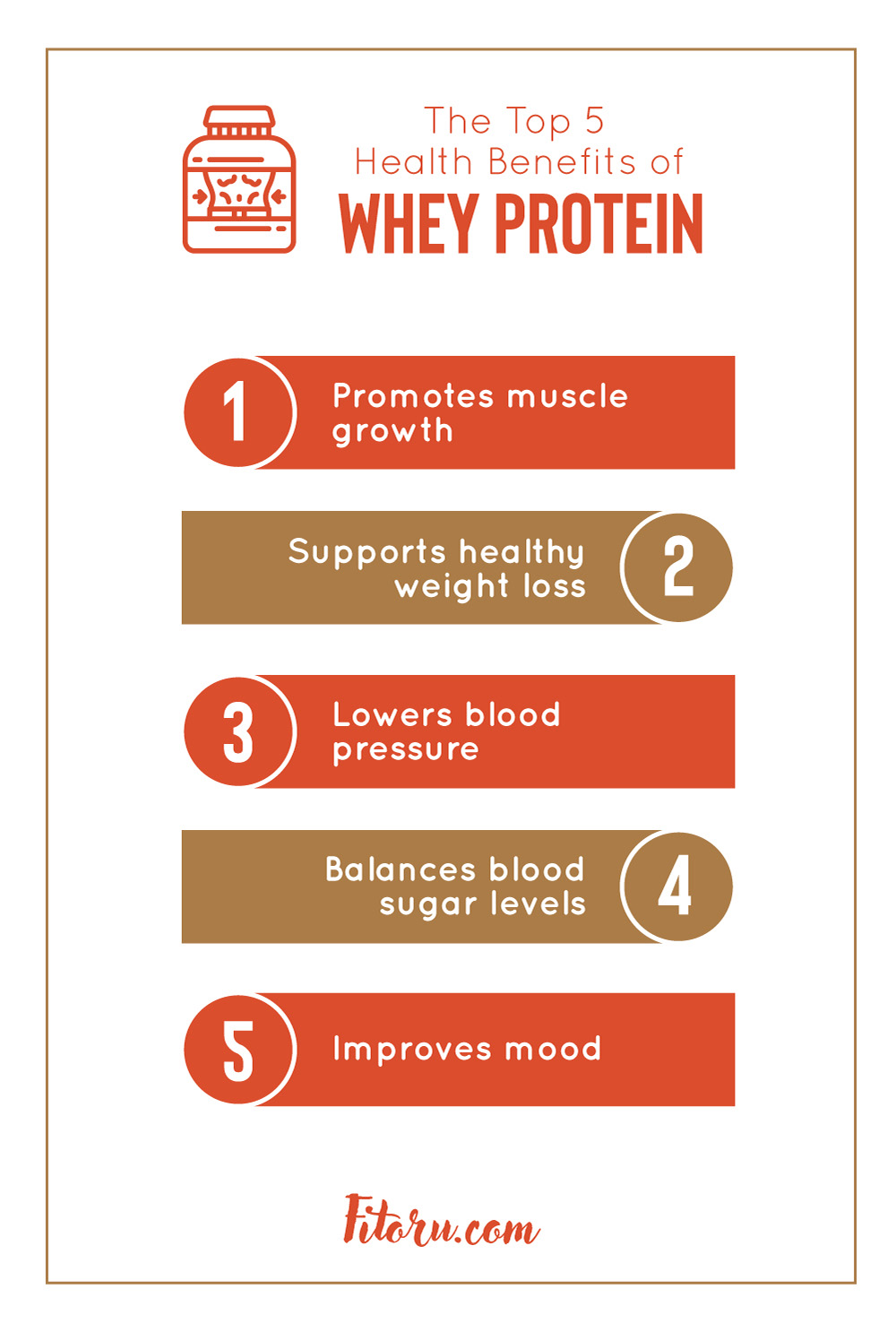Mon - Fri 9.00 - 17.00
Call us +1 (888) 825-9321

If you’re curious about protein supplements, it can be super overwhelming trying to sort out which of the many types of protein will be the best match for you and your health goals. Especially when you’re still trying to get answers to some basic questions like what is whey protein, anyway?
If you don’t have dietary restrictions that rule out whey protein, there’s a good case to be made that it’s the best type of protein out there. There’s a multitude of reasons why people argue whey protein reigns supreme. For one thing, it provides a ton of different essential amino acids, all of which can be readily absorbed by your body. A wealth of research shows that whey protein supplements support both muscle growth and fat loss, among other health benefits. Plus, whey contains plenty of nutrients other than protein that work together synergistically to enhance your overall well-being.
Before we go into the specifics of the different types of whey protein, the nutrients found in whey protein, and the ways it can improve your health, let’s define what whey protein is.
Whey protein can be defined, in the most basic terms, as a mixture of proteins isolated from whey. And whey is simply the liquid component of milk that’s skimmed away during the cheese-making process.
Milk itself contains two different types of protein: 80% of its protein comes from casein, while the remaining 20% comes from whey. Casein congregates in milk solids while whey collects in the watery portion of milk. Over the course of the cheese-making process, the fatty, casein-rich parts of milk coagulate, allowing the liquid-y whey to be separated.
It takes a fair amount of processing to transform whey into the forms we’re most familiar with: a powder (often flavored) that can be stirred into shakes, used as a meal replacement, or added to protein bars.
Since whey protein doesn’t have the most pleasant natural flavor, supplements often have additionally added flavoring. Chocolate, vanilla, and strawberry remain popular, though you can also find flavors like peanut butter, key lime pie, coconut ice cream, and more. Flavored whey proteins can be a delicious and creamy addition to many recipes. Be sure to read the ingredients list carefully when shopping for whey protein powders, however, since some manufacturers use not-so-healthy artificial ingredients to ensure a tasty end result.
If you were to make a pros and cons list for whey protein, the single biggest pro just might be its amino acid content.
Amino acids are small, vitally important molecules that link together to form proteins, the building blocks of the human body. Proteins provide structural integrity for pretty much your entire body, including:
Your body can produce some amino acids it needs, but others must be taken in from the food you eat or from dietary supplements like whey protein powder. There are nine amino acids—referred to as essential amino acids—that must come from diet and supplements.
If you’re going to take a protein supplement, it’s definitely best to choose one that contains all nine of those essential amino acids—like whey protein!
Whey protein provides a particularly high dose of branched-chain amino acids (BCAAs) like leucine and cysteine. Studies have shown that leucine has the most significant anabolic (aka growth stimulating) effects of any amino acid. And many of whey protein’s health benefits stem from its cysteine content. Because cysteine raises levels of glutathione, the most potent antioxidant in the human body, it can improve your health in a multitude of ways.
Whey protein also contains impressive quantities of other beneficial nutrients, including lactoferrin, beta-lactoglobulin, alpha-lactalbumin, and immunoglobulins.

The main differences between the three most popular types of whey protein—whey concentrate, whey isolate, and whey hydrolysate—come from the way they’re processed.
So, which type of whey protein is best? The answer depends on your personal health and fitness goals.
That said, there’s a reason whey protein concentrate is the most popular choice. Not only does it cost less than the two other kinds, but it also tastes better and contains all the health-promoting nutrients found in whey itself.
One important note: While most people pick concentrate, researchers tend to use whey protein isolate for studies. That means much of the information we have about the health benefits of whey protein are based on the effects of whey protein isolate.
The benefits of supplementing with whey protein have been thoroughly researched and extensively documented. Studies have shown that whey protein can maximize muscle growth and athletic performance, supercharge fat loss, and more.
Read on to learn about the science behind five of the top health benefits of whey protein.

Increasing muscle protein synthesis and growth is, without a doubt, the most common reason for the use of whey protein supplements. Bodybuilders, athletes, and fitness models have long relied on whey protein, and for good reason. Whether you’re looking to improve your performance at the gym or just trying to make sure your muscles pop in your selfies, whey protein can help you achieve your goals.
According to one study, whey protein supplements can lead to:
The researchers used a one-rep max lift for three exercises, the barbell bench press, squat, and cable pull-down, to measure strength gains.
There’s plenty of debate about whether it’s most effective to use protein supplements right before, during, or after workouts, but the latest evidence shows that your overall protein intake makes far more of a difference than when exactly you ingest it. If you’re interested in exploring and experimenting with timing, feel free, but don’t feel the need to stress over it.
At this point, it’s an accepted fact that increasing your protein intake can help you lose weight. Research indicates that a number of factors contribute to the connection between protein and weight loss.
Eating a high-protein diet has been found to increase energy expenditure—the number of calories you burn—as well as help you decrease the number of calories you eat each day by helping you stay full for longer.
One study found that participants who got one-fourth of their daily calories from protein had 60% fewer cravings and 50% less desire to snack late at night.
Adding a whey protein supplement to your diet is an ideal way to increase your protein intake and access the associated weight-loss benefits. A meta-analysis of randomized controlled trials (the gold standard of scientific research) found that using whey protein as a meal replacement led to an average weight loss of 8 pounds.
And supplementing with whey protein prevents a common weight-loss pitfall—that you lose muscle along with fat. According to a study published in Nutrition & Metabolism, whey protein supplements increase fat loss while preserving lean muscle mass.
Some researchers believe that whey protein may be able to help reduce blood pressure and improve your overall heart health.
According to one study conducted by scientists from the School of Public Health at the Curtin University of Technology in Perth, Australia, taking whey protein can lower your blood pressure.
Over the course of the 12-week study, participants who took the whey protein supplement had significant drops to their systolic blood pressure as well as their diastolic blood pressure.
Studies show that whey protein can balance the blood sugar levels of individuals with a typical insulin response as well as individuals with type 2 diabetes.
According to findings published in the Journal of Nutritional Biochemistry, this effect occurs because the bioactive peptides and amino acids found in whey protein stimulate the release of hormones in the gut that regulate insulin secretion.
Thanks to its ability to balance blood sugar levels, whey protein is under consideration as a potential treatment for type 2 diabetes.
Alpha-lactalbumin, a compound found in whey protein, can improve your mood by increasing serotonin levels in your brain.
Scientists have found that increasing the levels of serotonin in your brain can improve your mood as well as your ability to cope with stress. Your body needs an amino acid called tryptophan to produce serotonin, so increasing your intake of tryptophan can consequently increase your serotonin levels.
Study results published in the American Journal of Clinical Nutrition showed that alpha-lactalbumin, which has a high tryptophan content, can increase blood levels of tryptophan and decrease cortisol levels (a marker of stress).